Passing Afternoon – 100% Brett Mosaic Pale Ale
Since I started homebrewing I have been looking for ways to push flavors and try new things with brewing. Lately, I have been really intrigued by the use of brettanomyces as the primary fermenting yeast strain in beer. I have done a few experimental small 1 gallon 100% brett batches and I have been happy but I really wanted to take it to the next level. As soon as my local home brew store, High County Hombrew, got some fresh Mosaic hops I knew it was time. I felt that the mango, lemon, citrus, earthy pine, tropical fruit, herbal and stone fruit notes that the Mosaic hops produced were made to go with a fruitiness of some strains of brettanomyces. Below outlines the recipe and thoughts behind Passing Afternoon – 100% Brett Mosaic Pale Ale.
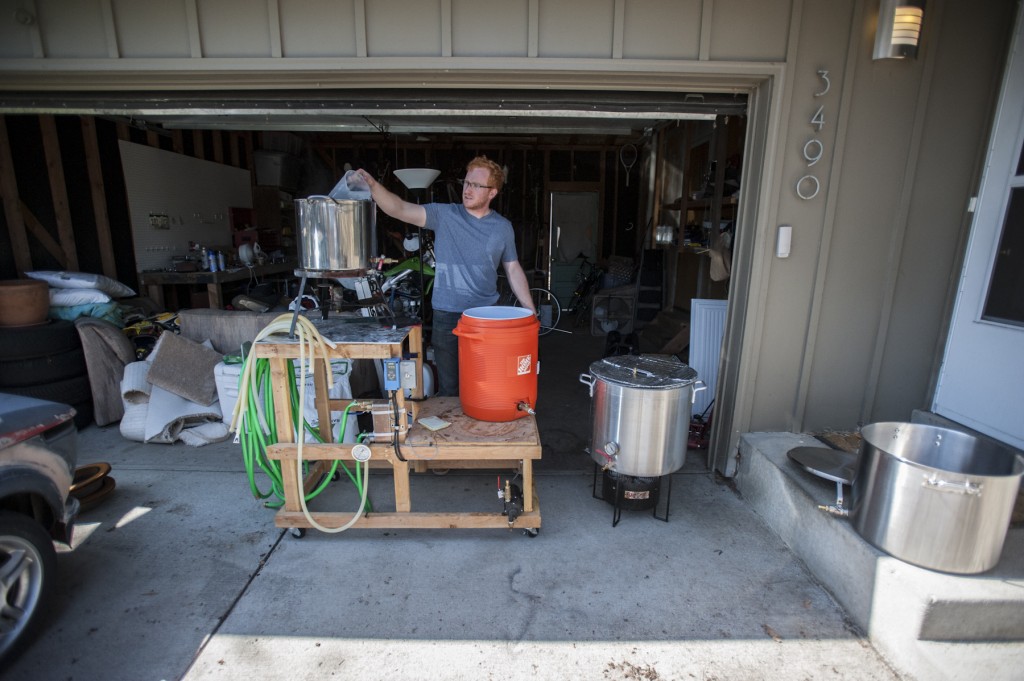
From there I wanted to select the appropriate strain of brettanomyces that complimented the hops. Through research from Chad Yakobson, owner and brewmaster of Crooked Stave, and tasting many of his 100% brett beers I decided that I would pitch multiple strains of brettanomyces to increase the complexity. I also decided that i would culture some of Chad’s own strains from a bottle of St. Bretta. According to Chad, St. Bretta has 2 different house strains of brettanomyces with in the beer. I pitched the dregs from two bottles in 400ml starter 2 weeks before our brew day. The yeast had great activity and smelled tropically amazing. I also made a start of brettanomyces claussenii to add to the mix. Along with this, fellow brewmaster and fellow porchdrinking writer, Philip Joyce made a starter of brettanomyces trois. We figured we would split the 10 gallon batch and add his starter to five gallons and add the other 2 starters to the other 5 gallons. This would be a 4 different strain brew day.
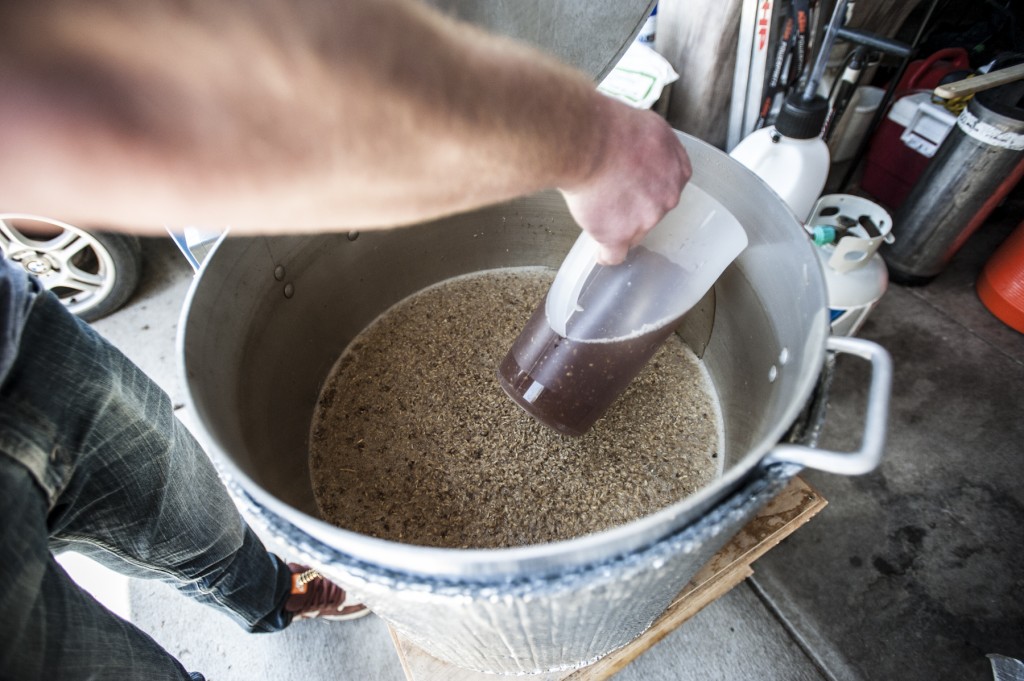
The brew day went well and the yeasts were pitched. Now time will tell how these multiple yeast strains will transform this beer. Stay tuned for a tasting of these two versions of the Passing Afternoon – 100% Brett Mosaic Pale Ale.
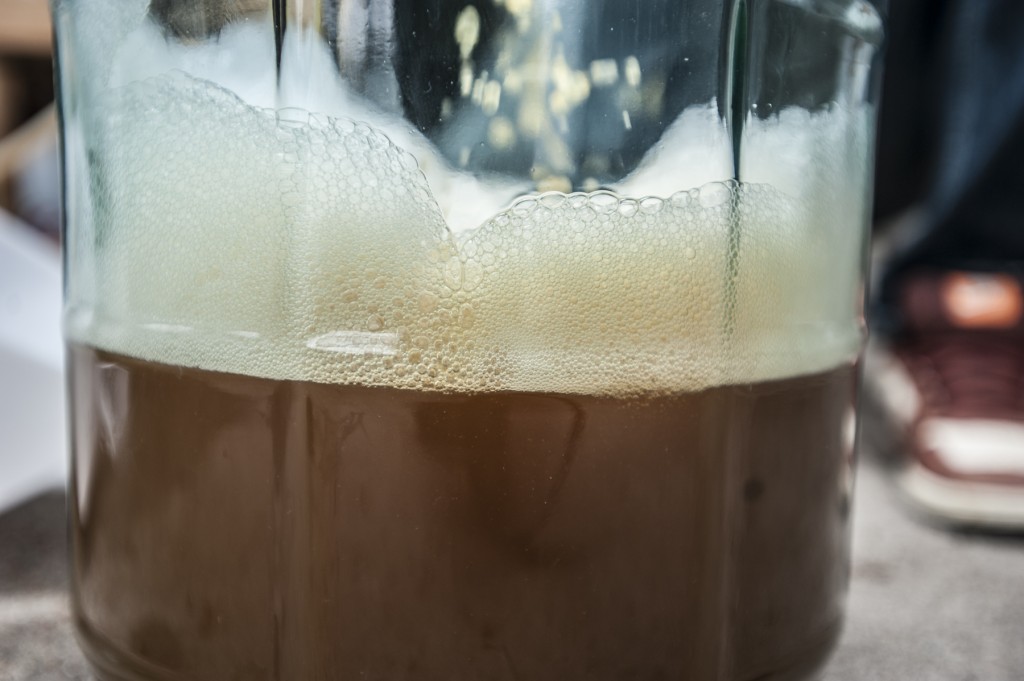
Brewed on 5-4-2013
Tasted on 5-30-2013 Gravity is down to 1.008. Smells of pineapple Taste is heavy stone fruits, peaches, pears, nectarines. Has a slight tart finish. Looking to bottle possibly next week.
Passing Afternoon – 100% Brett Mosaic Pale Ale
Recipe Specifications
Batch Size (fermenter): 10.00 gal
Estimated OG: 1.058 SG
Estimated Color: 6.1 SRM
Estimated IBU: 26 IBUs
Brewhouse Efficiency: 68.00%
Est Mash Efficiency: 71.6%
Boil Time: 60 Minutes
Grain:
20 lbs Pale Malt (2 Row) US (2.0 SRM) 78.0 %
2.25 lbs Munich Malt (9.0 SRM) 8.8 %
2.25 lbs White Wheat Malt (3.5 SRM) 8.8 %
1.0 lbs Acid Malt (3.0 SRM) 3.9 %
.15 lbs Caramel/Crystal Malt -120L (120.0 SRM) 0.6 %
Hops:
0.50 oz Mosaic [10.00 %] – First Wort 60.0 min 9.2 IBUs
1.00 oz Mosaic [10.00 %] – Boil 30.0 min 12.9 IBUs
1.00 oz Mosaic [10.00 %] – Boil 15.0 min 4.2 IBUs
2.00 oz Mosaic [10.00 %] – Boil 0.0 min 0.0 IBUs
Yeast:
5 Gallons – Propped up dregs from Crooked Stave St. Bretta and White Labs Brettanomyces Claussenii (WLP645)
5 Gallons – White Labs Brettanomyces Bruxellensis Trios (WLP644)
Mash:
Rest at 152 for 60 mins
-
Hi – just curious how this turned out after you bottled it? Considering doing a Citra Pale Ale with Brett only. Assume you did not use a secondary and just let it ferment out completely in the primary?


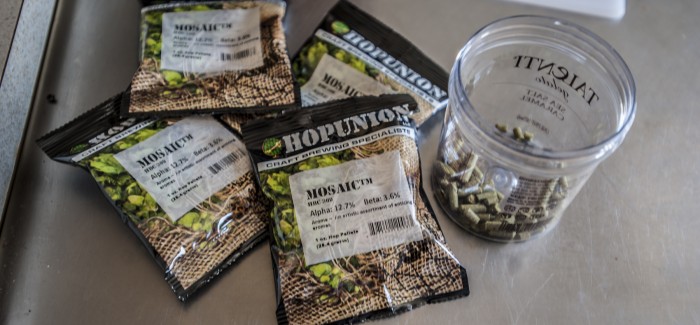

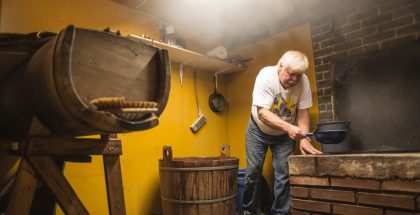

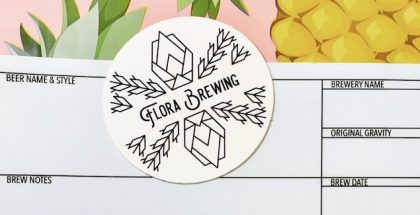
Comments